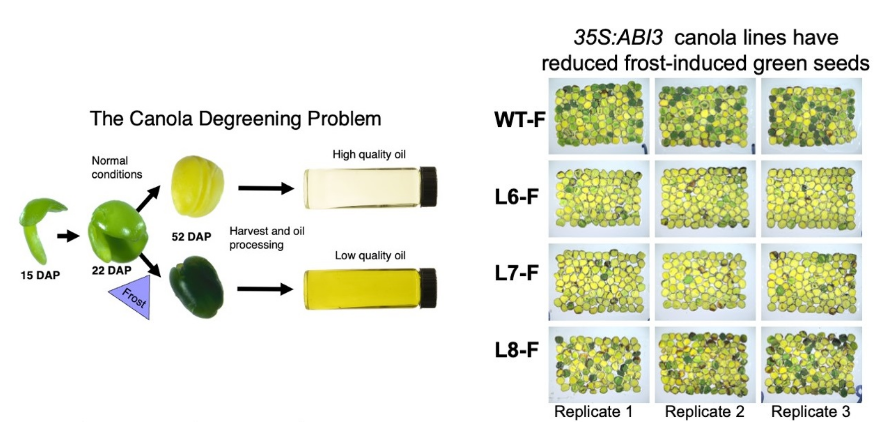Jun 16, 2023
A bio-solution towards alleviating the canola green seed problem
Exposure of canola plants to freezing temperatures prevents seeds from completely de-greening at maturity, resulting in mature green seeds, which produce poor quality oil. In North America alone, this results in losses up to $150 million annually. In a collaborative effort with Dr. Peter McCourt (University of Toronto), we have identified the signaling network that regulates de-greening in Arabidopsis. We have implicated ABI3, an ABA-mediated transcription factor, as the master regulator of seed de-greening. We showed that ABI3 mediated the transcriptional upregulation of the stay-green genes SGR1/2 to induce seed de-greening. Plants overexpressing ABI3 are able to produce brown or black seeds even after exposure to sub-lethal frost (Delmas et al., 2013, PNAS, E3888-3894). Given the similarity between canola (Brassica napus) and Arabidopsis, we were able to isolate the canola ABI3 and create canola germplasms overexpressing ABI3. These lines were shown to de-green seeds even after frost exposure and consistently produced mature brown seeds after exposure to frost conditions. In addition to this, these plants harbored stronger pods and had improved nutritional qualities (Perkins et al., 2019). We are currently partnering with Nutrien Ltd. to incorporate this technology into their elite germplasms in order to commercialize this technology. This work was originally supported by NSERC-DG and University Seed Grant; the translational research was supported by Agricultural Funding Consortium and NSERC-CRD funding.
For more information on this, please refer to

